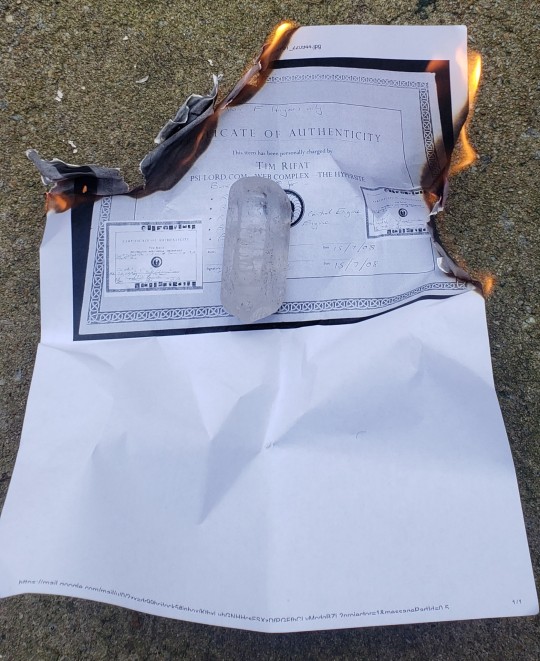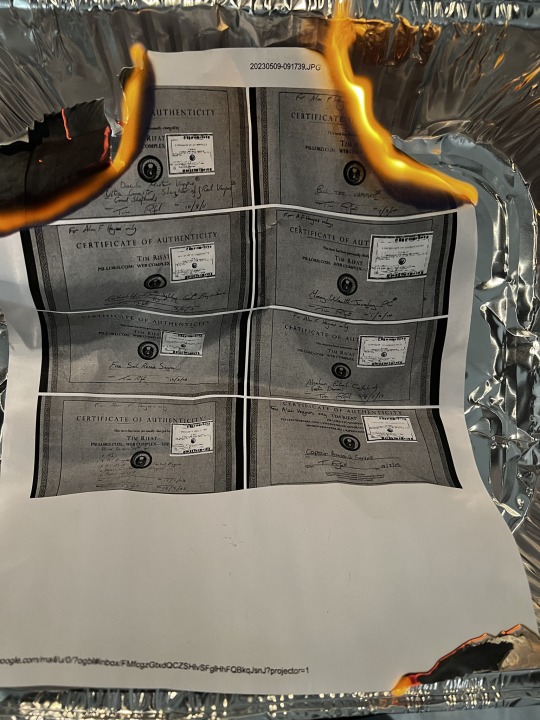#sstl
Text
Six Skeletons setup but Reader looks at all the sans-Papyrus combos and assumes that’s just how skeleton sexual dimorphism works and that they’re usually born in pairs, and then just doesn’t put together that it’s multiple universes until later.
#undertale#sans undertale#six skeletons#sstl#underfell#horrortale#underswap#I refuse to be judged for this
12 notes
·
View notes
Text
Sent our first novel to our betas last night! So excited to share more on Somewhere Safe to Land soon! 🥰
8 notes
·
View notes
Note
psst hi I am a huge fan of sstl, like it's probably the greatest fiction experience I've ever experienced, but I've never listened to any other works like it! would you recommend other works Ishani's been part of, or do you have any recommendations in general for, I guess, narrative fiction audio?
Oh for sure. Idk what exactly made you pick up ssttl or what about it struck a chord so for now I'm only gonna throw like 3 or 4 things out here based on vibe or plot similarities to ssttl and my personal preferences. If you wanna tell me more about what you're into I can try give you a wider range of recs.
First up, The Strange Case of Starship Iris.
If you picked up ssttl because it's sci-fi with lead characters of colour and queer rep, or because of how its futuristic in a way that feels believably fucked over by capitalism and yet still has a gentleness and hopefulness to it, or because you like character driven narrative then for sure give this a try.
It's also the reason I knew Ishani Kanetkar's name and knowing her name is why I immediately moved ssttl to the top of my "to listen to" list. The shows concept was cool enough to grab my attention but reading Ishani Kanetkar was in the leading role made me give it immediately. I haven't listened to all of the good doctor's work but I have noticed two things: 1, she is a fantastic VA. And 2, projects she's had a significant role in usually have a really cool concept behind them. She either has fantastic tastes, incredible luck, or both. Obviously read descriptions and see if something is to your taste before listening but like, no reason not to look up her other work and use it as a launch pad.
Back the tscosi rec. The story begins by following the harrowing day of biologist Violet Liu as her research vessel falls apart around her after an explosion. Against all odds someone is there to rescue her, captain Kay Grisham picks up her distress call, and the rescue comences. The rest of the season follows the fall out of that tragic explosion and heroic rescue.
The show is ongoing, currently has 2 complete seasons out with a 3rd (and I believe final) season to come.
Rec 2: Girl In Space
A funny and resourceful scientist lady, living alone in space, talking to her recorder logs and her ships glitchy AI (who may or may not have or be developing sentience), and one day being very surprised when suddenly she has a human person to talk to instead. Sound familiar?
The plot is actually very different though. Our girl X lives on a space station that can never return home and her whole existence is as much of a mystery as what exactly her mission is supposed to be. The soundscaping on this show combined with Sarah Rhea Werner's (and the rest of the casts) acting is absolutely amazing.
There is currently 1 season fully released and the second season is apparently due out this year. In reccing this I may have accidentally begun a relisten.
Rec 3: Wolf 359
This one is actually complete if that means anything to you. Figured I'd drop one in since the other two have been ongoing. Its a big one, over 60 episodes plus a ton of bonus episodes.
Wolf 359 follows the crew of the u.s.s haphaestus an isolated little research vessel orbiting a star designated Wolf 359. It starts out goofy and like there isn't gonna be much plot, this is a cunning ruse to lull you into a false sense of security before hurtling you into an emotional roller coaster that will make you fear for, cry for, laugh with, and grow to love the rag tag crew. The characters are very compelling in that they are allowed to be flawed, some to the point that they are unlikeable, but in that good way that means you're connected with the story and wanna see them get their comeuppance, not that they're badly written and make you wanna stop listening kinda way.
Also like half the cast is voiced by the writer Zach Valenti, and even telling you that, if you check the show out there are gonna be episodes where if you hear the credits list and go "wait, he was that many people!?" Amazing VA abilities.
Rec the fourth, The Penumbra Podcast.
TTP has two story lines and you can listen to one without ever touching the other but Imma rec both here because there is a reason this podcast as a whole makes so many rec lists for anyone looking to get into audiodrama series. Both storylines have very different vibes and approaches, but both deal overall subtly deal with what it is like growing as a person, how rewarding it can be, but also acknowledging how fucking hard that can be.
Story line one, the Juno Steel universe, aka the Junoverse. This is a sci-fi story with a film-noir aesthetic. It follows the titular, character private detective Juno Steel a dame with a chip on his shoulder nearly as deep as a skyscraper is tall, and the cases they take in Hyperion City, a mega colony on a futuristic Mars. There is an overarching plot even as we go from case to case until eventually we move beyond that format.
The second story line is Tales from the Second Citadel. Set in a post apocalyptic high fantasy setting, the Second Citadel. This story follows the intersecting tales of several of the kingdoms knights (and a few not knights too). One of the knights will sound very familiar, Sir Damien voiced by Matthew Zahnzinger who also voices Mikail Reza in ssttl. In a truly hilarious turn of events Sir Damien also has a life changing (romantic) encounter with a scale covered non human entity.
Both story lines are highly character driven and contain a lot of heart. They also both feature a cast that is diverse in terms of race, sexuality, and gender.
As I said if you tell me more about what you liked about ssttl or why you chose to listen to it I'd be happy to give some more refined recs. All of these save for the second citadel portion of tpp involve space stuff but if you're open to more supernatural or just more terrestrial sci fi I definitely have more options you could consider.
If you ever wanna shout about ssttl or any of these shows if you end up listening to any well then you know where to find me.
Oh left field bonus rec because I just got a note about a post I made about it, Where the Stars Fell.
Unkillable lady scientist specialising in cryptid studies moves to the strange little town of Jerusalem Oregon. Becomes roommates with a reclusive author. They get along much like oil and water, it is all very gay.
I am typically a little turned off by shows with so many religious references but this one manages to be religious in the way that Good Omens is religious. That is, it's not preaching religion, its just using characters and concepts people may be familiar with from Christianity and using them to tell a funky little supernatural story with naturally high stakes grounded by very human characters. (human in the sense that they are emotional and flawed and brilliant).
It just finished its first season a couple of month ago so everyone is waiting for season 2, myself included.
#chirping wren#podcasts#audio dramas#hope at least one of these becomes a good listening experience for ya anon#cannot reiterate enough that you're welcome to come yell about any or all of them here plus any other cool ones you find yourself#ssttl#tscosi#girl in space#wolf 359#the penumbra podcast#wtsf
47 notes
·
View notes
Photo

First satnav receiver designed to operate in lunar orbit delivered to satellite maker The first satnav receiver designed to operate in lunar orbit has been delivered to satellite maker Surrey Satellite Technology Ltd in the UK for integration aboard the Lunar Pathfinder spacecraft. The complete Navigation payload seen here includes a four helix antenna (left, in the glass box) developed by MDA in Canada, plus the NaviMoon satnav receiver from Swiss company SpacePNT, and the low noise amplifier developed by EECL in the UK, who also undertook the manufacturing and the environmental test campaign for both the satnav receiver and amplifier. The payload is designed to boost and process faint terrestrial Global Navigation Satellite Signal (GNSS) signals from more than 400 000 km away, harnessing advanced processing and navigation algorithms to fix the spacecraft's position, velocity and timing in lunar orbit in real time. It is complemented by a lunar Laser Retroreflector Array (LRA) (right), developed by NASA under agreement with ESA, composed of 48 mirrored retro-reflectors that will enable centimeter-scale laser ranging of the spacecraft as it orbits the moon, to authenticate the satnav receiver position fixes during the experiment. Due to be launched in late 2025, SSTL's Lunar Pathfinder mission will serve as a telecommunications relay satellite for future missions to the moon, to serve assets on both the nearside and farside, orbiting in an 'elliptical lunar frozen orbit' for prolonged coverage over the South Pole—a particular focus for future exploration. ESA is Lunar Pathfinder's anchor customer, while NASA will also make use of its services in exchange for delivering Lunar Pathfinder to lunar orbit through its Commercial Lunar Payload Services (CLPS) initiative aboard the CS-3 Firefly Blue Ghost 2 mission. Lily Forward, SSTL systems engineer and Spacecraft Lead for Lunar Pathfinder, comments: "SSTL is thoroughly looking forward to not only being part of this historic joint venture between ESA and NASA but also being part of the first CLPS task order to fund the transfer of both a landing and orbital asset to the moon." Cyril Botteron, CEO and Co-founder of SpacePNT, says, "This will be for the team the culmination of a long development that we started nearly 10 years ago at Ecole Polytechnique Fédérale de Lausanne (EPFL), with the development of a first proof of concept prototype of a super high sensitivity GNSS receiver suitable for moon missions." Michele Scotti, Technical Manager at SpacePNT, adds, "This achievement stems from the hard work and dedication of the whole team. It is immensely rewarding to have this once-in-a-lifetime opportunity to pioneer autonomous lunar navigation with our NaviMoon receiver." Success would mean future moon missions could effectively navigate in cislunar environment– fixing autonomously and in real-time their position, using GNSS, with an accuracy better than 100 m, while foregoing the use of costly ground infrastructure. "This may become a practical way for lunar missions to autonomously determine their own orbits, and also to perform time reference transfers between Earth and the moon," explains Javier Ventura-Traveset, Moonlight NAV manager leading ESA's Navigation Science Office and coordinating all ESA lunar navigation activities. "To validate the satnav results, the Lunar Pathfinder spacecraft will also perform concurrent X-band radio and laser ranging during the GNSS experiment windows. This will allow to test and combine three ranging technologies at once—GNSS, radio and laser ranging—which has never before been performed from lunar orbit." Pietro Giordano, Radio Navigation System Engineer and technical officer in charge of the receiver notes that "by demonstrating critical technologies required for precise lunar navigation, our Navigation Experiment Payload has the potential to revolutionize the way satellites are operated in cislunar space." A successful formal Delivery Review Board held this week confirmed the payload is ready to be embarked on Lunar Pathfinder.
4 notes
·
View notes
Text
دبي: «الخليج»
كشف كل من أندريه راجولينا رئيس جمهورية مدغشقر، ومحمد مويزو رئيس جمهورية المالديف، وبريثفيراجسينج روبون رئيس جمهورية موريشيوس، ووافل رامكالاوان رئيس جمهورية سيشل، أمس الثلاثاء، عن خطط تنموية شاملة لمواجهة التحديات التي تواجهها دولهم ولدعم اقتصاداتها.
جاء ذلك في جلسة رئيسية، ضمن أعمال اليوم الثاني من القمة العالمية للحكومات 2024، التي تستضيفها دبي تحت شعار «استشراف حكومات المستقبل».
وقال رئيس مدغشقر إن بلاده ركزت لمواجهة التحديات وسد الفجوة التنموية المتراكمة على مدى أكثر من 60 عاماً، على عدة قطاعات أساسية، مؤكداً أن الزراعة تمثل أحد القطاعات ذات الأولوية لا سيما أن 80% من السكان يعيشون في المناطق الريفية.
وأكد أن قطاع الطاقة يعد أحد الركائز الأساسية لعملية التنمية، إلا أن التكلفة العالية للكيلووات/ ساعة تجعل من الصعب الوصول للكهرباء وتبطئ التنمية، خاصةً أن 23% فقط من السكان يحصلون على الطاقة، لذلك سيقومون بتسريع عملية تحول الطاقة في مدغشقر، وفي الأشهر المقبلة سيتم إنشاء 60 حديقة للطاقة الشمسية في 119 منطقة في جميع أنحاء الجزيرة، الأمر الذي يمثل خطوة كبيرة نحو الطاقة الخضراء النظيفة والمتجددة.
وأضاف: «من خلال برنامج أطلقناه باسم (الضوء في كل منزل)، ستوفر 4 ملايين أسرة نحو 2 إلى 4 دولارات شهرياً، أي ما يقرب من 960 مليون دولار على مدى 5 سنوات، بما يؤدي إلى تحسن في الحياة اليومية لكل أسرة، وتسريع وتيرة النمو الاقتصادي في البلاد».
وواصل: «في مجال الصحة، قامت مدغشقر بإصلاحات هيكلية كبيرة على مدى السنوات الخمسة الماضية، إذ إن مشكلة نقص البنية التحتية للمستشفيات تسببت في فقدان الكثيرين حياتهم بسبب صعوبة الوصول إلى المشافي»، كاشفاً عن أن مدغشقر منذ استقلالها عام 1960 لم يكن بها سوى 18 مستشفى جامعياً لعدد سكان يزيد على 28 مليون نسمة.
وفيما يخص مجال التعليم، أكد رئيس مدغشقر أن حكومته بنت 4198 فصلاً دراسياً لتعليم أكثر من 200 ألف طالب في 5 سنوات فقط، فيما تم تجهيز المدارس بالكتب التعليمية والأدوات وأجهزة الحواسيب، كما تم إنشاء المقاصف المدرسية.
وكشف عن أنه يجري التعاون مع الإمارات في مجال الرقمنة من خلال المدرسة الرقمية ومبادرة المبرمجين التي ستقوم بتدريب أكثر من مليون شاب على التقنيات الجديدة، بما يعزز من الوصول إلى سوق العمل ويساهم في استيعاب معدل البطالة.
الاقتصاد الأزرق
كشف رئيس سيشل أن بلاده أطلقت عدداً من المبادرات التي تهدف إلى ضمان ممارسات السياحة المستدامة مع الموازنة بعناية بين الحفاظ على البيئة والازدهار الاقتصادي.
وأضاف: «من الأمور الرئيسية في نهج سيشل التزامها بالاقتصاد الأزرق، الذي يتضمن تخصيص جزء كبير من الأراضي البحرية للبلاد كمناطق محمية، بما في ذلك المتنزهات والمحميات البحرية».
وتابع: «علاوة على ذلك، أنشأت سيشل علامة سيشل للسياحة المستدامة (SSTL)، وهو برنامج لإصدار الشهادات يعترف بأماكن الإقامة السياحية والمُشغلين والخدمات التي تلتزم بالممارسات المستدامة مثل الإدارة الفعالة للنفايات والحفاظ على الطاقة والمشاركة المجتمعية».
وأوضح أنه في إطار سعي دولته لتقليل الاعتماد على الوقود الأحفوري والتخفيف من الآثار البيئية، استثمرت سيشل في مصادر الطاقة المتجددة مثل الطاقة الشمسية وطاقة الرياح.
وقال: «علاوة على ذلك قطعت سيشل خطوات كبيرة في حماية تنوعها البيولوجي الفريد، باستعادة الموائل، ومكافحة الأنواع الغازية، وبرامج حماية الأنواع»، ولفت رامكالاوان إلى أن سيشل تجعل الأولوية أيضاً للسياحة الثقافية.
مدن ذكية ومخاوف
قال رئيس موريشيوس إن أحد التحديات الرئيسية التي تواجهها العديد من البلدان النامية هو التوسع الحضري السريع الناجم بشكل رئيسي عن الهجرة الداخلية.
وأضاف: «بالنسبة للدول الصغيرة النامية مثل موريشيوس، تمثل التنمية الحضرية تحدياً كبيراً لتحقيق التوازن بين النمو الاقتصادي والعدالة الاجتماعية والاستدامة البيئية». وذكر أن النمو السكاني في مساحة محدودة يمثل مهمة شاقة في توفير البنية التحتية الأساسية والخدمات الأساسية مثل السكن اللائق والمياه والطاقة، ويضع هذا ضغطاً إضافياً على النظم البيئية والمناطق الزراعية الهشة بالفعل، والتي تتفاقم بسبب التأثير السلبي لتغير المناخ، مؤكداً أن هذه الظاهرة الحتمية تتطلب نقلة نوعية في استراتيجيات التنمية الحضرية. وأوضح أنه بهدف ضمان الشمولية والنمو المستدام، هناك حاجة إلى العدالة المناخية في وقت الطوارئ، فبدلاً من الناتج المحلي الإجمالي فإننا نرغب بشدة في أن يصبح الضعف المناخي معياراً للتمويل الميسر من خلال آليات التمويل غير المناخية.
وقال: «لتحقيق هدف التنمية المستدامة بشأن تعزيز التوسع الحضري الشامل والمستدام وضعت موريشيوس خططاً لتشجيع الاستثمار الخاص في تطوير المدن الذكية، والتي تدور حول مفهوم العمل والعيش والترفيه».
مرونة وفرص
قال رئيس المالديف إن دبي تمثل شهادة عالمية للتقدم المثير للإعجاب على مدى عقود قصيرة، عبر تسليط الضوء على العديد من أفضل ممارسات الحوكمة وخدمات المواطنين الأكثر ابتكاراً.
وذكر أن جزر المالديف لم تكن ملاذاً للجمال الطبيعي فحسب، بل تبنّت أيضاً نهجاً ثاقباً للتقدم، مضيفاً: «رؤيتي لجزر المالديف هي الاستفادة من هذه المرونة والفرص الهائلة التي يتيحها موقعنا الجغرافي الاستراتيجي، فجزر المالديف تتطلع إلى الأمام وفق رؤية شاملة ومبتكرة وتحتضن التنمية المستدامة».
وأضاف أن «التوقعات لعام 2024 تبدو واعدة، حيث أظهر عدد السياح في المالديف نمواً بنسبة 11% في الشهر الأول مقارنة بالفترة نفسها من العام الماضي، ومن المتوقع أن تحقق البلاد مليوني سائح هذا العام».
وواصل: «في إطار جهودنا لتوسيع قطاع السياحة لدينا، نخطط لإدخال السياحة البيئية، والسياحة الرياضية، والسياحة التعليمية، وسياحة الاستشفاء، في إطار مفهوم اقتصاد الزائر».
المصدر: صحيفة الخليج
0 notes
Text
Synthetic Aperture Radar (SAR) Market Is Estimated To Witness High Growth Owing To Increasing Demand for Surveillance and Weather Forecasting
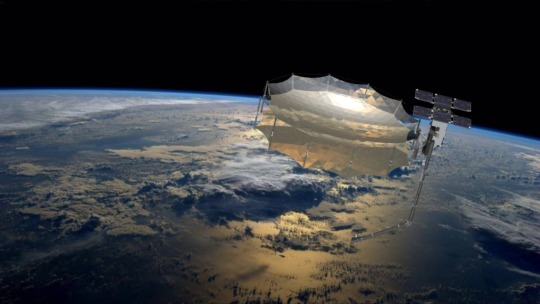
The global Synthetic Aperture Radar (SAR) Market is estimated to be valued at USD 4.69 Bn in 2023 and is expected to exhibit a CAGR of 11.07% over the forecast period 2023-2028.
A) Market Overview:
Synthetic Aperture Radar (SAR) is a remote sensing technology used for generating high-resolution images of the Earth's surface. It uses radio waves to create 2D or 3D images, even in adverse weather conditions or during nighttime. SAR has a wide range of applications such as surveillance, weather forecasting, agriculture, defense, and disaster management. In surveillance, SAR systems can track moving targets and enable the detection of hidden objects. In weather forecasting, SAR can provide data on atmospheric conditions and help predict severe weather events.
B) Market Dynamics:
The Synthetic Aperture Radar (SAR) Market is driven by two major factors. Firstly, the increasing demand for surveillance systems for border control, maritime monitoring, and defense applications is fueling market growth. SAR systems provide detailed information about landscapes, surveillance targets, and moving objects, making them crucial for military and defense operations. Secondly, the growing need for accurate weather forecasting and disaster management is boosting the demand for SAR technology. SAR can provide real-time data on atmospheric conditions, rain distribution, and natural disasters like floods and earthquakes, enabling timely responses and minimizing risks.
C) SWOT Analysis:
Strengths:
1. High-resolution imaging capabilities
2. All-weather and day/night operation
Weaknesses:
1. High cost of SAR systems
2. Limited availability of skilled professionals
Opportunities:
1. Increasing adoption of SAR in agriculture and forestry
2. Advances in SAR technology such as miniaturization and improved data processing
Threats:
1. Competition from alternative remote sensing technologies
2. Stringent regulations and restrictions on SAR data collection and usage
D) Key Takeaways:
The global Synthetic Aperture Radar (SAR) Market is expected to witness high growth, exhibiting a CAGR of 11.07% over the forecast period, due to increasing demand for surveillance systems and accurate weather forecasting.
North America is expected to dominate the market during the forecast period, driven by the presence of major players and the extensive use of SAR technology in defense and security applications.
Key players operating in the global Synthetic Aperture Radar (SAR) Market are Airbus Defense and Space, Lockheed Martin, Israel Aerospace Industries (IAI), Thales, Northrop Grumman, SSTL, MDA Information Systems, Raytheon, and Sandia National Laboratories. These companies are focusing on product innovation, strategic collaborations, and mergers and acquisitions to strengthen their market presence and expand their product portfolios.
In conclusion, the Synthetic Aperture Radar (SAR) Market is witnessing significant growth due to the increasing demand for surveillance systems and accurate weather forecasting. As advancements in SAR technology continue to enhance its capabilities, the market is expected to witness even higher growth in the coming years. North America is currently the dominant region in the market, but other regions are also expected to exhibit substantial growth. The key players in the market are actively involved in research and development activities to stay ahead in this competitive landscape.
0 notes
Text
Few nights before leaving J family house (after 3 solo weeks there for SSTL courses)
3 nights of strange intense dreams and sleeplessness
I’m not going to say the dream straight out, rather explain it first. It wouldn’t give much of a Description if I was to try and word it out in anyway way shape or form. I’ll start with a brief understanding;
You know those falling dreams? You hit and wake up or are about to hit, wake up, heart racing, panicked with the bed moving like you just fell into it. Every time it feels like I just fell back into my bed.
Well imagine free falling like so, waking up mid fall only to start the dream over again. Lucidly aware that you were still dreaming. Stuck in a dream loop. I kept falling after exploring the dream a bit and then waking up in another part of the dream, and having this continue almost a dozen times over and over. Becoming slightly more lucid each time just a little quicker. The dream foundations mutating and warping more and more as I went deeper, the infinite void of continuous dreamscape became more acknowledge able. Self-aware? Almost working against me.
Green tall strands of seaweed floating up as if in water that was not visible, twisted into thicker vines stretching outward. Using them to swing around they became more resilient and stretchy as I went to fling myself up on to a higher level. They slow grew reaction with a mind of their own, wrapping around me and resisting. Like tentacles with a mind.
Floating surfaces in the air, otherworldly dream state from images and art.

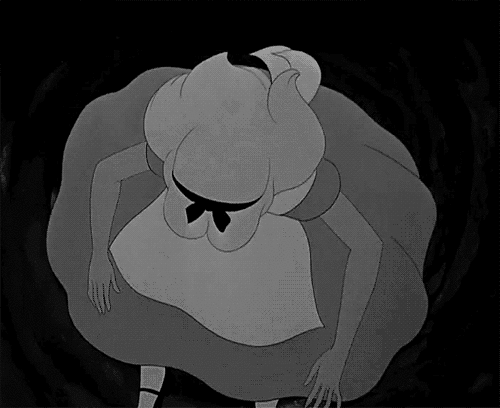
0 notes
Text
Hacking the Feminist Disabled Body » The Journal of Peer Production

💾 ►►► DOWNLOAD FILE 🔥🔥🔥
Selection of space news for breakfast: Maxar will offer the military to connect directly to its satellites via a mobile terminal, and China will launch a large space telescope. Orbex showed a prototype of an environmentally friendly launch vehicle. The U. Colombia is the 19th nation to join the Accords, unveiled in , and the third in Latin America after Brazil and Mexico. Virgin Orbit is buying two more planes that will help get satellites to the final frontier. The rocket leaves Earth tucked beneath the wing of a carrier airplane, which drops it at an altitude of about 35, feet 10, meters. This air-launch strategy increases flexibility and responsiveness, Virgin Orbit representatives say. They are a satellite dish and the terminal. Such a set of equipment allows connecting to their satellites. According to Maxar President Daniel Jablonski, the company is now receiving a huge number of requests from government organizations and new equipment is the answer to them. The four-person crew who will fly on the all-private Polaris Dawn mission will begin training for their ride. It will include the first commercial spacewalk using SpaceX spacesuits. However, this will not be the only record, as the mission should also reach the highest near-Earth orbit in history. It will exceed the orbit of the ISS three times. Spire Global said it is installing Ku-band antennas from fellow smallsat operator Kepler Communications on at least three satellites to offer higher capacity data services beginning next year. The reusable Prime rocket, the first micro-launcher developed in Europe, now awaits tests on a launch pad at Space Hub Sutherland, a new spaceport in northern Scotland, which received planning permission in August Services, and Viasat. Beijing has confirmed plans announced earlier to launch a large space observatory , the capabilities of which will be comparable to the Hubble telescope. It will be launched at the end of using the Changzheng-5B rocket and will begin observations in A market ecosystem that incentivizes the rapid development and fielding of advanced Space Traffic Management STM technologies will be a key enabler to the sustainable growth of the space economy. As defined by the International Academy of Astronautics, STM protects future sector growth by encouraging the development and application of technology to preserve access to space and assets already in orbit. STM technologies must be fielded today with support from both government and industry. The United Kingdom is getting serious about beaming solar power from space and thinks it could have a demonstrator in orbit by Over 50 British technology organizations, including heavyweights such as aerospace manufacturer Airbus, Cambridge University and satellite maker SSTL, have joined the U. Space Energy Initiative, which launched last year in a quest to explore options for developing a space-based solar power plant. While NASA and other space agencies intend to leverage local resources as much as possible—a process known as in-situ resource utilization ISRU —creating lunar bases will still require lots of materials and machinery to be shipped from Earth. In a recent study, Philip Metzger and Greg Autry reviewed the cost and energy consumption of building landing pads on the lunar surface. After considering various construction methods, they determined that a combination of additive manufacturing and polymer infusion was the most efficient and cost-effective means. Read also: James Webb telescope has completed optics setup, and Russian spacecraft will not be able to fly to the Chinese orbital station: News Digest. Related: The largest airplane in the world has made a new flight NASA will support the creation of a second lunar lander for the Artemis program The US will impose sanctions against the Russian space program NASA to switch to commercial communication systems NASA stops the rehearsal of launch of a lunar rocket due to a fuel leak. Load more.
1 note
·
View note
Photo

Ya tenemos nuevos modelos de nuestra colección "Los Autos que han Dejado Huella". De venta ya con nosotros y claro con un descuento sobre el precio de portada, ¿qué esperas para tenerlo ya? #distribuidoraejeo #colección #fascículo #entrega #tomo #carro #auto #autos #rápido #veloz #fast #automovil #automovilismo #car #cars #cars🚘 #autosquehandejadohuella #entrega229 #ladderfiretruck #ladder #fire #truck https://www.instagram.com/p/Cfu_tq-ssTL/?igshid=NGJjMDIxMWI=
#distribuidoraejeo#colección#fascículo#entrega#tomo#carro#auto#autos#rápido#veloz#fast#automovil#automovilismo#car#cars#cars🚘#autosquehandejadohuella#entrega229#ladderfiretruck#ladder#fire#truck
1 note
·
View note
Text
The United Kingdom is making progress on its space photovoltaic power plant project
The United Kingdom is making progress on its space photovoltaic power plant project
On the other side of the Channel, the United Kingdom hopes to deploy its first orbital photovoltaic power plant as early as 2035. The beginning of a new cycle for renewable energies?
Last year, the English government announced with great fanfare a remarkable initiative; with around fifty prestigious institutions, including Airbus, the University of Cambridge or the satellite manufacturer SSTL,…
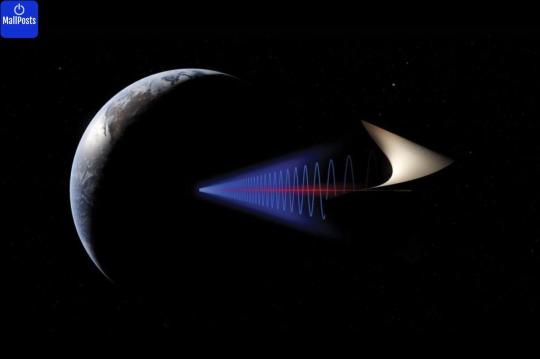
View On WordPress
0 notes
Text
Reino Unido planeia construir uma central solar espacial
Reino Unido planeia construir uma central solar espacial
A Airbus, a Universidade de Cambridge e a fabricante de satélites SSTL são apenas exemplos de 50 organizações que se estão a unir no desenvolvimento de um projecto que tem como principal missão criar energia a partir da luz solar captada diretamente no Espaço. A iniciativa visa ajudar o Reino Unido a atingir sua meta […]
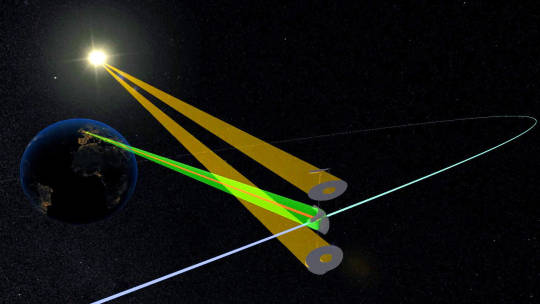
View On WordPress
0 notes
Text
The stars must look on forever || Second Star to the Left
Bell Summers is supposed to be minding three Scouts.
Three months in, Gwendolyn Hartley hasn’t answered a single one of their calls, and all they can think is maybe I already failed. When the comms finally spark to life, they almost fall off of their chair in relief even as they snap accusing protocol down the line because it’s better than saying thank god thank god thank god you’re alive thank god you’re okay to a stranger.
It’s a thought that will repeat.
Read on Ao3
(Spoilers through to end of ep. 10 below)
Stars are beautiful, but they may not take an active part in anything, they must just look on for ever. It is a punishment put on them for something they did so long ago that no star now knows what it was.
- J.M. Barrie Peter Pan
When they receive the data packet detailing their three assigned scouts, Bell spends the whole night curled up reading through every detail, narrating key details to Gigo. They’ll read it all again in the morning, and again a few weeks later, and again the night before landfall, until they’ve memorised it - the scant personal details, names and pronouns and birthdates, the more detailed medical records (you can’t monitor someone’s physical condition without knowing the baseline, without knowing that Mikail mustn’t eat tomatoes and the schedule for when Hartley has to do regular maintenance on her prosthesis), the dense reports on what’s known of their destination planets. They use up highlighters and scrawl on post it notes.
Strictly, it isn’t Bell’s job to know the first thing about the planets beyond the elevator summary, but they were a scout before they were a minder. The structure of the dossier hasn’t changed a bit, and they absorb it all. They don’t know what they missed, on their failed expedition, but they won’t let it happen again. They can’t.
Priyanka isn’t a surprise; they knew that strings were being pulled specifically to line them up to be the assigned minder for Pri’s mission, because Pri’s uncle knew that if it came down to it Summers would burn every tenuous bridge they’d managed to rebuild to get her off the planet, and damn the consequences. They’re all so, so proud of Pri for getting through training, for being clever enough and strong enough and driven enough to make it, and they’re so worried too. Bell would burn any bridges, of course they would, but not every danger has enough of a time window to drag resources into place.
Mikail on paper seems promising - when his comms unit splutters into life as he’s speeding through the stars, months into the first year of expected isolation, he seems promisingly eccentric. He’s a cheerful rambler to Pri’s quiet snark, chattering about the reading he’s doing and the experiments he ran on the side back in training. They listen, gauge his wellbeing and start the slow work of building up trust, and try to ignore the smile tugging at their lips. This burring curiosity would serve him well, they think in the early days, exploring and studying and mapping out a whole new planet, so long as it didn’t kill him. It was their job to make sure it didn’t, that he remembered to eat and sleep and build proper shelters. That he remembered he couldn’t live off of curiosity and scientific glee alone.
Hartley doesn’t respond at all.
Bell checks all of the reports they can, to see if the signal is disrupted or there’s any suggestion that there’s been a technical issue, but everything shows up as working. They can see readouts of Hartley’s vitals, pulse rate and oxygen levels, so they know she’s alive. Probably. If one thing has gone wrong with the shuttle, who knows what other bizarre glitches may have cropped up.
They tell themselves that everything is fine, that there must just be a wire loose in the radio unit or, much more likely, Hartley has just decided that she doesn’t need a scout-minder and wants to go solo, has decided that Summers is an unnecessary and patronising addition to the mission. They submit false reports on Hartley’s well being, because they have absolutely no issue with lying to their superiors when they know the consequences for revealing that one of their three scouts has gone radio silent before even making landfall.
They talk to Pri and Mikail regularly, review condition reports on all three of them, ping Hartley every day and get no response.
They tell themselves that everything is fine.
Bell Summers is supposed to be minding three Scouts.
Three months in Gwendolyn Hartley hasn’t answered a single one of their calls, and all they can think is maybe I already failed. When the comms finally spark to life, they almost fall off of their chair in relief even as they snap accusing protocol down the line because it’s better than saying thank god thank god thank god you’re alive thank god you’re okay to a stranger.
It’s a thought that will repeat.
Retrieving your scout bot hadn’t been a tradition for Bell’s local program. They wonder if it’s one that other programs have, or if it’s just Hartley’s program, one of the small, unofficial differences that most of the time no-one ever knows about. It’s not like scouts regularly get the chance to compare notes outside of their cohort.
If they kept to their class promise, Pri and Mikail had been familiar enough with their minder after three months to not inform them of where they were going - neither of them were in the habit of thinking aloud to their bots, either, which would have made it easier to hide that they weren’t strictly following protocol. Gwen was defiantly independent, uncaring of her unexpected monitoring, and Bell wanted to cheer her on and reign her in at the same time.
They guess most places have a tradition or two, some secret pact amongst scouts who are pointing themselves out to the stars and seeing where they land. Something to tether you, when you set foot on a new planet and know you’re on your own, something that ties you back to the people you left behind. Bell takes a moment to be grateful that their pact hadn’t been quite so risky; instead of venturing out into the unknown before even setting up a shelter, they had sworn to wake up early, ignoring all the schedules and warnings and automated messages prompting them to get their full six hours - find somewhere high and climb up to watch the first sunrise on planet.
They’d scraped the skin off their palms clambering to their highest point, winced as they cradled the thermos they’d carried up with them and the warmth stung the broken skin. The ground had been damp, seeping through the seat of their trousers, a bite to the air that made their nose run, but they’d done it. They’d pointed Gigo in the right direction to record the sight, this first dawn over a new horizon, the first day of their new life.
Despite everything that happened, the nightmare things had turned into, the bitter taste on the back of their throat whenever they think back to the way it had gone, it’s a memory that brings a smile to their face even as they scold. It’s a memory that they might not have thought to be precisely worth it, if they’d known at the start what they’d learned by the end, but it’s a memory they cling to all the same.
They can’t help but be a little glad that there’s some kind of tradition for Gwen, too, even as they worry aloud about structures and protocols and whether Hartley is going to have the shelters up in time.
The shelters have air filtration built in, have temperature regulation, and are designed to withstand the harshest of conditions. If everything turns to dust, they think the shelters will keep their scouts alive for long enough to find a solution.
They direct all three of their scouts to build an emergency beacon, the one deviation from the protocols that Bell told themselves at the start that they’d not only permit but encourage - no, insist upon.
The union had fought so hard for assigned minders, for check ins on alternate days and a reliable source of human contact, citing studies of mental well-being and the importance of support networks, but it all went one way. Bell would call their three charges every other day, talk to them or listen in as they went about their business for the mandated four hours, and review any data packets the scouts copied them into when they were sent out to home office - to monitor for adhesion to proper protocol, for signs of strain, and for their own scientific curiosity. The scouts would answer the call, update them, then be stuck waiting a day and a half for the next call. If there was an emergency, they would have no way to reach out, to ask for help.
If something happened, Bell wouldn’t know until they tried to call and no-one answered.
The beacons meant that the scouts could at least ping them, a request for contact that would tell Bell to drop everything and grab their headset. With a few quick instructions, the beacon could be altered - honestly, any of the scouts probably knew enough engineering to figure it out themselves - so that it wasn’t locked to just the one frequency.
If there was an emergency, if their scouts were let down by all official channels, Bell wanted them to be able to reach out to anyone else who might listen, to have the choice to burn their own bridges for the sake of living. They thought, sometimes, that if it had just been them they wouldn’t have called on the smugglers, but they wouldn’t ask the same of these three scouts; looking through the dossiers, curled into a narrow bunk on a half decrepit station, Bell had already known that they’d beg them to do whatever it took to survive.
It’s not even that they’re that much younger than Bell - only a few years their junior - but they seem it. They seem so painfully young, practically children for all that they’re in their twenties. Still caught in the excitement of it, lost children pointing themselves at the stars and planning to map it all by hand.
Bell had been that young, once, before everything - before they spent years alone on a planet, before they were told your lives aren’t worth saving and turned around to save them anyway, before all of the ongoing consequences of that choice drove the knife that much deeper.
What are you going to do if something goes wrong? snipes scout Hartley, her first day on planet as she’s standing on shaky legs, leaning on Boots because she managed to get bitten by something venomous on her little jaunt into the undergrowth. Listen?
Bell splutters something back, because they know how useful this can be - someone to talk to, someone to do research when you’re stuck, knowing that someone picked up the phone and heard you out. Knowing that someone out there will notice, if you disappear for good.
They don’t sleep well, staring at the ceiling over their bunk, thinking. They know it can help - they know they can help, that Hartley would probably be a lot more inclined to listen if she knew that her minder had walked this road themselves - but they can’t hide from the harsh truth.
If it comes to it, if one of these three scouts finds themselves trapped in an apocalypse, sends up a beacon to say it’s all falling apart and I have no way out - all they can do is listen, and hope it’s enough.
Priyanka falls ill, and they don’t notice.
Pri has been important to them for years, but they’ve never been close, exactly. They know each other mostly from stories shared by Pri’s uncle, and there’s a level of familiarty that you don’t get from those kinds of tales, from a few months’ worth of regular check ins. Hartley notices, sees something amiss between the lines of the letters Pri sends her, and she does the only thing she can, flags it to their shared scout-minder - she does the only thing she can and speaks up, hoping that someone will listen.
Bell wonders, later, once Gwen has been proven terribly right, if maybe this is the first time that Hartley has thought of their presence as anything other than an annoyance. Pri, once she got over the change in expectations, had been glad to have a semi-familiar presence on the line, someone who she could trade family gossip with when she felt like it and had worked out an agreement with for the time when she didn’t want to bother with conversation, and Mikail had been cheerful enough from the start to have someone to talk to about all his ideas and findings, but Hartley had always seemed - resentful, maybe, like having Bell shatter her solitude was unwelcome, for all that she seemed to agree with the union on the practicalities of providing a life line of contact.
Pri fell ill, and Bell didn’t notice.
They remind themselves, over and over, that it hadn’t been obvious. Gwen, Mikail and Pri had studied together for years, lived in each other’s pockets as they made the same harsh choice to leave everything they knew behind with no guarantee they’d ever be able to get any of it back. It makes sense that Gwen had seen something Bell didn’t, they know it makes sense, but they can’t keep from going back over every report, replaying every conversation, trying to pick up the hints of a change that they hadn’t seen.
What else would they miss?
They lose Mikail to a storm, nothing but static when they try again and again to call. Bell hunches over their monitor in their tiny cubicle, punching buttons with fingers that want to shake, hoping that if they try just once more it will go through. They’d known the risks, all of them, of course they had, but -
This was what they’d feared most, when they took the job. If a planet collapsed, if it came to it, they had strings they could pull with the smugglers, had learned already where they drew the line. The worst news they’d expected to have to deliver would have been bad news, the settlement office doesn’t care about you at all and won’t cough up any of their copious spare change to save you, but good news I’ve got some friends on their way, so sit tight and keep the line open. But they’d known the statistics for scout missions; they’d known that they’d be stuck on one end of a line through accidents, through unforeseen dangers.
Bell had wondered, on sleepless nights, what they would do if they called one of their scouts and got nothing in return. They’d thought they would have gotten used to it, what with Hartley turning off all comms for literal months before they finally made contact, but this was different. At least with the shuttles they’d had the readouts, vital signs and tracking, to guess that things were probably okay.
Mikail was just gone, and they thought about what Gwen had told them, what Mikail had never mentioned directly for all his endless chatter - of all the scouts, of all the planets, they’d sent the one who hated water and despised swimming to a place he couldn’t escape the sea.
They had never met their scouts, but they had seen them in photos. There hadn’t been pictures included in their briefing information because it wasn’t necessary, but Bell had wanted a mental image of the people they were speaking to, so they’d looked up the relevant records in the system. Pri they’d seen in pictures before, shared by a proud uncle, but Gwen and Mikail had just been names with attached heights and weights until they called up the photos attached to their official IDs.
It meant they could imagine - Mikail, on his island, frowning at the waves and smiling at his scans. Mikail, caught in the water, washed away in a storm surge - they see it, over and over, whenever they try to sleep.
The beacon pinging them is so unexpected that they think for a moment they may be dreaming. They’d thought it too late, that everything must have been washed away along with their scout, but here he is reaching out to them. The emergency, against protocol backdoor channel that they’d insisted on was doing its job, and they were so glad. They drop everything, as promised, as planned, and when Mikail’s voice come through their headset they bury their face in their hands, even while they fight to keep their voice even.
What else had they missed? Pri, poisoned by something in the air that crept into her system and twisted her brain in circles. Mikail had been quietly studying an alien species without mentioning it, had learned enough to make a call that they wish he didn’t feel he had to make.
They lose Mikail to the sea, after all.
That he was choosing to dive and keep swimming helped, but they lose him all the same.
Gwen’s planet lights itself on fire, and all they can do is listen.
They wonder, somewhere in the midst of the panic they’re fighting not to allow to bleed through into their voice, if this is some kind of punishment. If this is another penalty, some kind of justice, you let your settlers down and now you have to be stuck watching, always watching and never able to do anything useful.
They’d been stuck listening as Pri struggled to diagnose the changes to her own brain, to the silence on the end of the line when Mikail was swept away, to the quiet certainty of his decisions after that. They’re stuck listening once more as Gwen runs back into the oncoming fire to get their maintenance kit, because if she leaves it behind there’s little enough point surviving anyway.
They don’t know who they think it’s a punishment from, and they don’t voice the thought because they know it isn’t, really. They do. Bell knows, as well as anyone, that knowing someone is listening even if there’s nothing to be done can mean everything.
But it seems like so little, one hand clutching the edge of their wobbly desk in their narrow cubicle to ground themselves, pressing their headset closer to their ear like that will somehow help, like being a millimetre closer to the ear-piece can make a difference to Gwen as she tries to outrun a wildfire. It seems like so little, to be able to only promise to pass on any messages that Gwen wants, to swear they won’t stop until they’re delivered, if they’re the last words Gwen ever gets to say.
It seems like so little, and that’s before they learn the truth, learn that Peter will never read any of the letters.
Peter has been dead the whole time, and later Bell will think they should have guessed - neither Mikail or Pri had mentioned him much at all, even when Mikail had been listing off who he wished he could talk to about his decision, the limited handful of people who he wanted to be told the truth if it was safe to. Gwen had never shared a single snippet of a letter from Peter, for all she repeated gossip about her sister and stories from her other friends on their own missions, and Bell thinks they should have guessed from that alone rather than assuming it was just too private.
They hadn’t - they hadn’t thought they knew everything about Hartley, of course they hadn’t, but Gwen narrated her day to Boots and, by extension, Bell whenever they called. They’d thought that Gwen was the one they weren’t missing anything from - no unrecognized illness, no secret alien encounters.
Just a grief they hadn’t known she was carrying, a loss she was still learning to live with.
They think maybe they know, now, why Gwen had been so reluctant to have a voice in her ear, that first day, setting out to rescue a scout bot she’d sworn to retrieve. Why it had mattered so much that this was her first achievement, once her boots touched the ground of that alien planet for the first time.
Gwen’s planet is burning and neither of them know what she’ll have left in the world when it dies down, so Bell does the only thing they can and tries to fill the uncertain silence with a story to hold on to.
When Amelia lays out gleeful threats, promises of justice, it’s Gwen that Bell calls.
Their head has been spinning since they hacked into the archives - they’d bought into the conspiracy theory, somehow, half convinced themselves there was a big reason for what had happened, something that would answer all the questions they’d lived with for years. Something that could ease the burden of guilt on their shoulders and caught at the back of their throat.
Well, they had their answer: a skipped scan. A check they forgot, let slide because they were busy, a protocol they set aside to juggle other things - yet another warning sign they’d missed.
Gwen insists otherwise, points out the ways they can’t be blamed, the way they wouldn’t blame any of their scouts if positions were changed. Points out that maybe it wasn’t a conspiracy, but there’s still something dodgy going on. There’s still something here - in the way these records are hidden, restricted, when they should be public record.
If there was nothing here more damning than the record of what Bell missed and the price their settlers paid - it would be a cautionary tale, something held up in class for the overconfident new scouts: here’s why you should stick to protocol, kids, even when it seems pointless. This is why you can’t get complacent, get comfortable, can’t trust that after five years you know everything about your planet and you can relax.
But it’s hidden, and they refuse to let that stand. They’ve wondered, so often over the years, if being made to do nothing but listen helplessly is the punishment for whatever mistakes they made. They know that’s what their employers think, those in the know about their history, shaking their heads and murmuring about how at least this once-promising scout can put their training to use. Those that can do, do, and those that can’t, teach. Or, as the case may be, listen.
They listened, and they know that mattered.
They listened when Hartley raised concerns, pushed for scans and tests to uncover what was ailing Pri, what could be done to save her. They listened to Mikail when he begged to be declared dead, gone, pleaded for them to be the one to break his family’s hearts because he couldn’t stand to be the reason his planet and its people were destroyed. They listened to Gwen while her home burned, talked to her through the panicked flight and the post-adrenaline slump.
Sometimes all you can do is speak, and hope someone is listening.
Twenty years for the murder of someone still alive. There’s an irony there, but they��re not sure they appreciate the joke. Less for good behaviour, so they try to curb their tongue, suppress the urge to fix things and instead try to maintain a stoic silence when they want to stand up to anyone who thinks to shove them around.
After the first time they throw a punch in prison, because someone crosses a line and it’s all too much, because they can’t let it slide and still be them - it occurs to them, bandaging up bruised knuckles and wondering if they tell Gwen about this or try (and probably fail) to hide it, that it doesn’t matter.
They aren’t here because the people in charge really think they committed murder – no unbiased court could look at assembled an emergency beacon out of spare parts and scout who hated swimming drowned after his entire camp was destroyed in a massive storm and conclude that it was remotely related, let alone intentional: they’re here because when they were told the price of freedom was lying to – lying about - their settlers, denying their dead justice, they said not a chance in hell.
This isn’t a flawed attempt at justice, this is a punishment.
They won’t be allowed out early, even if they’re the perfect prisoner. They have to live with this, and if that means getting a few bruises and scraped knuckles - well. They’ve never been afraid of a fight, and they weren’t the best at following the rules even before they realised just how little anyone in power cared.
Gwen writes to them, and they can’t help checking in - are the crops growing, is her leg holding up, has she done her monthly environment scans (yes, yes, and of course, Bell) - all of the questions they had written out years ago to cover in regular check ins.
They wonder who has taken over as scout-minder, who’s talking Pri through her newfound challenges as best they can without stepping too much on her fiercely independent toes and trying to figure out the change in cadence that signifies Hartley has switched to talking to Boots rather than whoever is on the line. They wonder if anyone is trying periodically to ping Mikail, hoping against hope that this time he’ll answer, that by some miracle he survived (they wonder if he’s figured out how to get his own messages to Gwen, once he realised that conference calls had always been an option except for bureaucratic limitations)
They’re checking in, lists of questions and signs to watch out for briefed to them in advance, but they’d ask anyway, even if they’d never been told to ask.
This stopped being about making sure that the scouts who’d had so much money and time invested into them remained at optimum performance sometime around the first time the call connected and they were taken on a completely out of protocol wander through Gwen’s new home in search of a defunct scout bot and a new horizon.
They’ve come a long way, since the first long weeks of trying and failing to reach the third of their assigned scouts over the comms, since the first time Gwen picked up the call to discover that instead of an automated message she had a live - and somewhat irate - scout-minder waiting on the other end of the line.
Bell knows that there’s no point trying to call until the ship is in sight of the planet, that they won’t have the signal or the range to reach Gwen until it’s a matter of hours before they meet face to face. They try anyway, thinking with retrospective fondness of the first three months, calling a number that never picked up no matter how often they tried.
They wonder what’s going on, on planet.
This is the first time they’ve been out of contact from Gwen since the first relieved moment when a call went through, when Scout Hartley made landfall and resigned herself to turning the computer and all its notifications back on. Bell thought at the time that being stuck just listening was bad, but they never thought they’d have months with no contact at all, no way of knowing. Everything had seemed fine, and the settlement ship was en route, but they knew how quickly things could deteriorate.
Then again, Hartley had managed to coordinate a prison break remotely and apparently undetected despite using official comms channels to do it under the settlement offices’ collective noses. She was probably fine and managing to do a lot of impressive and yet wildly off protocol things that would delight and exasperate Bell in equal quantity.
Honestly, Bell would like to say they’re surprised that this is the kind of woman they fall in love with, but they’re not; they’re years past lying to themselves like that.
The planet comes into view, and they reach for their headset again. In a matter of hours, it won’t matter - neither of them will be stuck just listening, offering up ideas and research and stories to carry each other through, calling for help and hoping someone pays attention.
But for now, the comms unit splutters, Gwen’s voice filling the storage bay they’re illicitly camped out in, and Bell presses the headset closer to her ear like that will help them hear more clearly, will make it easier to know for sure that Gwen is really okay, unsuspected and untouched by the fallout.
I’ll see you on the ground, they promise, a distant star falling to the earth at last, and watch the horizon come into view.
#my writing#Second Star to the Left#SSTL#I had a lot of feelings at the end of this podcast okay#Very much recommend it if you haven't listened
28 notes
·
View notes
Link
Space debris mitigation efforts are getting real. We should see the first large objects being deorbited within a few years.
10 notes
·
View notes
Photo

Soushi Souai Chapter 32: Physical Fitness Test



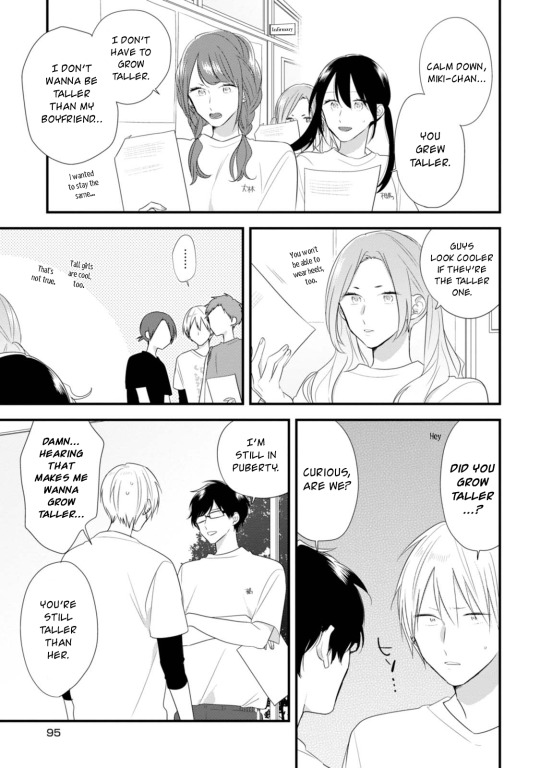























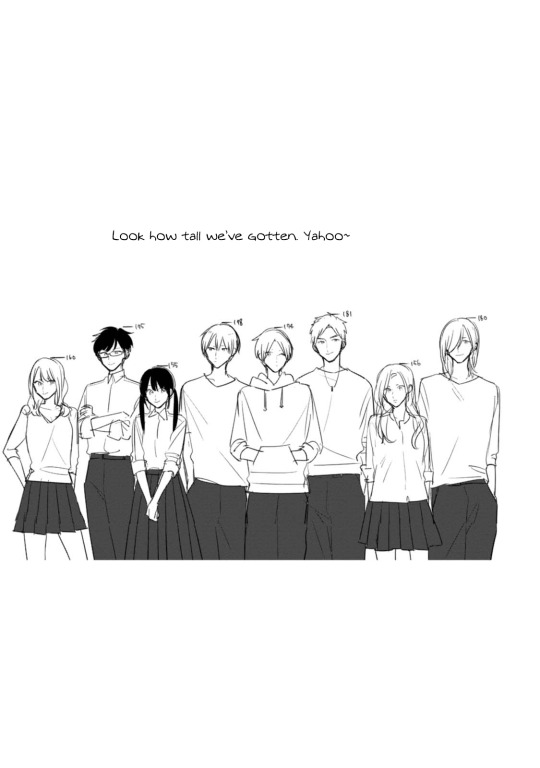
#soushi souai#sstl#mytled#wakamatsu soushi#souma megumi#tachibana yasutaka#oobayashi miki#miyamoto taiyou#kikuchi chihiro#kawasaki taku#sunamoto ron#kashiwabara kiyoshi#romance#shoujo#school life
44 notes
·
View notes
